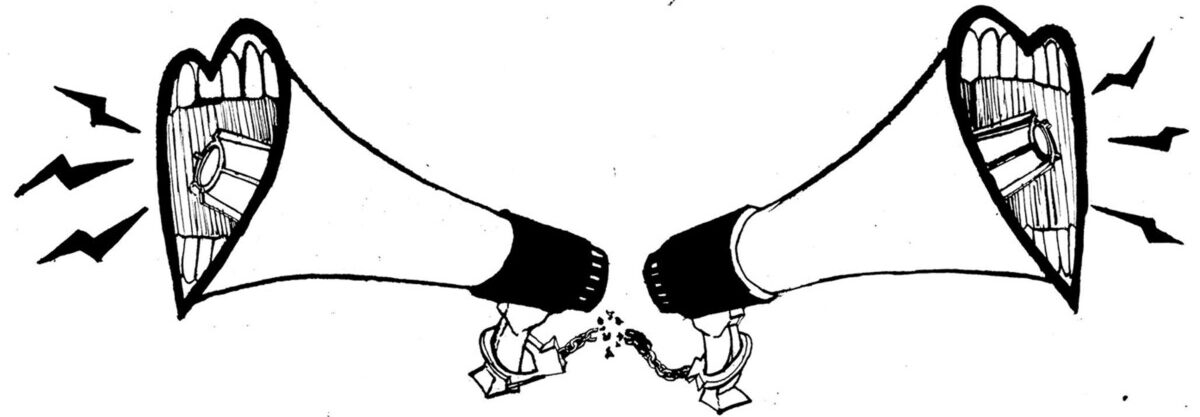This semester we’ve read and talked a lot about intersections of technology, information, capitalism, surveillance, and social justice. We’ve also learned about people and organizations who are working to draw attention to issues of inequity, provoke change, and even create alternative political and technological systems. While imperfect, one of the reasons that I like libraries is that they are (at least theoretically) for everyone–a kind of common space–where people can learn and get access to information and technology, ask questions, and just exist without paying any money.
For your final project, you will create a library of possibility that responds to a specific need in your community that isn’t currently being addressed by the social, technological, and political systems in place. Your library doesn’t have to be a building or a place with books or look like any library that you’ve visited or seen before.
As part of this project, you should conduct research to identify what this need is, why it exists and how your library will address this need. You should use at least one source from a newspaper or online journalism website about the community needs that your library addresses and also conduct original observational or ethnographic (or auto-ethnographic) research about community members who will interact with your library and/ or the place where your library will be situated. Observational and ethnographic research methods will be discussed in class.
Library Components
Your library should have the following…
- A name
- A purpose that you describe in a brief mission statement
- A specific audience or community that it serves
- A location
- A collection of “material” that it provides access to (this material could be something tangible like: technology, living organisms, musical instruments, interviews, or places to sit; or something intangible like: laughter, empathy, or solitude)
- An access statement that describes how people will use and engage with the material in our library and interact with other community members in or through the space
- Description of other relevant library policies or rules (hours, rules, surveillance, community agreements)
- Citations for sources you’ve consulted or been inspired by
- Attributions for any images you use that you find online or in source material
Forms that your library can take:
- An installation in a real space (like a bench where people can read or a small garden plot that people can add seeds to) that is accessible to your library’s audience with accompanying visual and written documentation
- A conceptual project that might not be possible to actually install or build but that you describe (using writing and visuals); visuals might be found images or drawings or blueprints
Project Criteria
What you will actually make (chose ONE of the following):
- An OpenLab project site that summarizes the research you’ve conducted and that includes information about your library’s title, mission, policies, AND either: your installation visual and written documentation, or conceptual library description and visuals
- A zine of at least 10 pages that summarizes the research you’ve conducted and that includes your library’s title, mission, policies, AND either: your installation visual and written documentation, or conceptual library description and visuals
Deadlines and Grades
This project is worth 20% of your total grade for this course.
- Library Concept / technology plan (100 words) Dec 6th
- Final Project due Dec 15th / in class showcase (2-3 minutes) Dec 13th or Dec 15th
This is a creative project so there are no specific formatting and length requirements (although the zine should be at least 10 pages).
On Dec 6th, you should post a short description of your library concept of ~100 words on the discussion board. Your library idea doesn’t have to be fully developed but you should at least have identified the problem your library will address and the community that it will serve.
This short description can be repurposed as part of your project documentation and is really just to check in to make sure everyone is on the right track.
Here are some examples of my favorite non-traditional libraries:
https://www.humanlibrarynyc.org/
http://www.subwaytherapy.com/new-page-2
https://charliemacquarie.com/library
https://www.croptrust.org/our-work/svalbard-global-seed-vault/
https://library.artstor.org/#/collection/87730635



